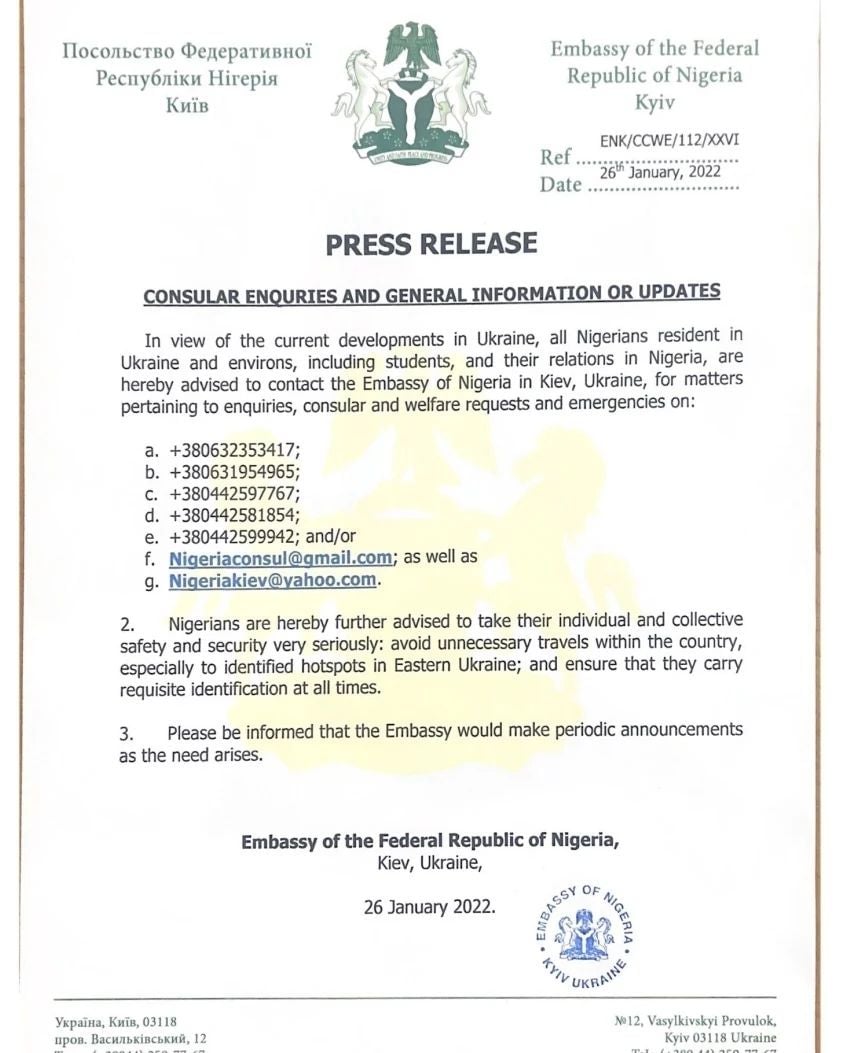What happens to the 4,000 Nigerians studying in Ukraine?
The move by Russian president Vladimir Putin to increase his military’s presence in Ukraine has set off all kinds of panic around the world, destabilizing oil markets, and threatening to cause food price hikes in Africa and Asia. One other area of panic is the disruption to the thousands of Africans studying in Ukraine.


The move by Russian president Vladimir Putin to increase his military’s presence in Ukraine has set off all kinds of panic around the world, destabilizing oil markets, and threatening to cause food price hikes in Africa and Asia. One other area of panic is the disruption to the thousands of Africans studying in Ukraine.
According to Ukraine’s ministry of education and science, Morocco, Nigeria, and Egypt are in the top 10 list for countries whose students are studying in Ukraine, accounting for 8,000, 4,000 and 3,500 students respectively. The three countries made up nearly 20% of all foreign students in Ukraine as of 2020.
Students from these and more than 150 other countries flock to Ukraine for bachelor’s and master’s degree programs. Medicine is a particular subject of interest for Nigerians with the Africa-Ukraine academic relationship dating back to soviet times.
A crisis would put foreign students’ education in Ukraine in doubt. In the wake of Putin’s latest aggression, India has today (Feb. 22) advised its students to temporarily leave Ukraine. The message from Nigeria has not been as crystal clear.
Protect yourselves
As of press time, the website of Nigeria’s foreign affairs ministry showed a message that it was “under maintenance.” On Twitter, the ministry’s only post in line with the prevailing moment was to debunk a purported advisory note from the ministry discouraging Nigerians from traveling to some eastern European countries.

The ministry’s last advisory, through the embassy in Ukraine, was on Jan. 26 in which it asked Nigerians in Ukraine to “take their individual and collective safety very seriously.” Among other things, that involved avoiding unnecessary travel within Ukraine. Five phone numbers were provided as emergency contacts.

The only follow up since was a statement on Feb. 6 from Abike Dabiri-Erewa, who heads the Nigerians in Diaspora Commission (NiDCOM), that the government “is doing all it can to ensure the safety and security of all Nigerians in that country.”
Nigeria’s foreign minister still silent on Ukraine
As is the case with some Indian students in Ukraine, Nigerian students may not be eager to leave if it could cost their spot in the programs they are enrolled in. Should they abandon it to return home, studying at a Nigerian university may not be the best alternative considering the prevalence of strikes, including one currently on-going by academic staff union of universities.
That said, the sentiment from conversations online is that the Nigerian government should provide help to as many students as may want to leave Ukraine until the tension subsides. If some action is being taken in this regard, it is currently not public knowledge. On Twitter today, Geoffrey Onyeama, the minister of foreign affairs, posted about his condolence visit to the Kenyan high commission. No word yet on Ukraine.
Sign up to the Quartz Africa Weekly Brief here for news and analysis on African business, tech and innovation in your inbox.